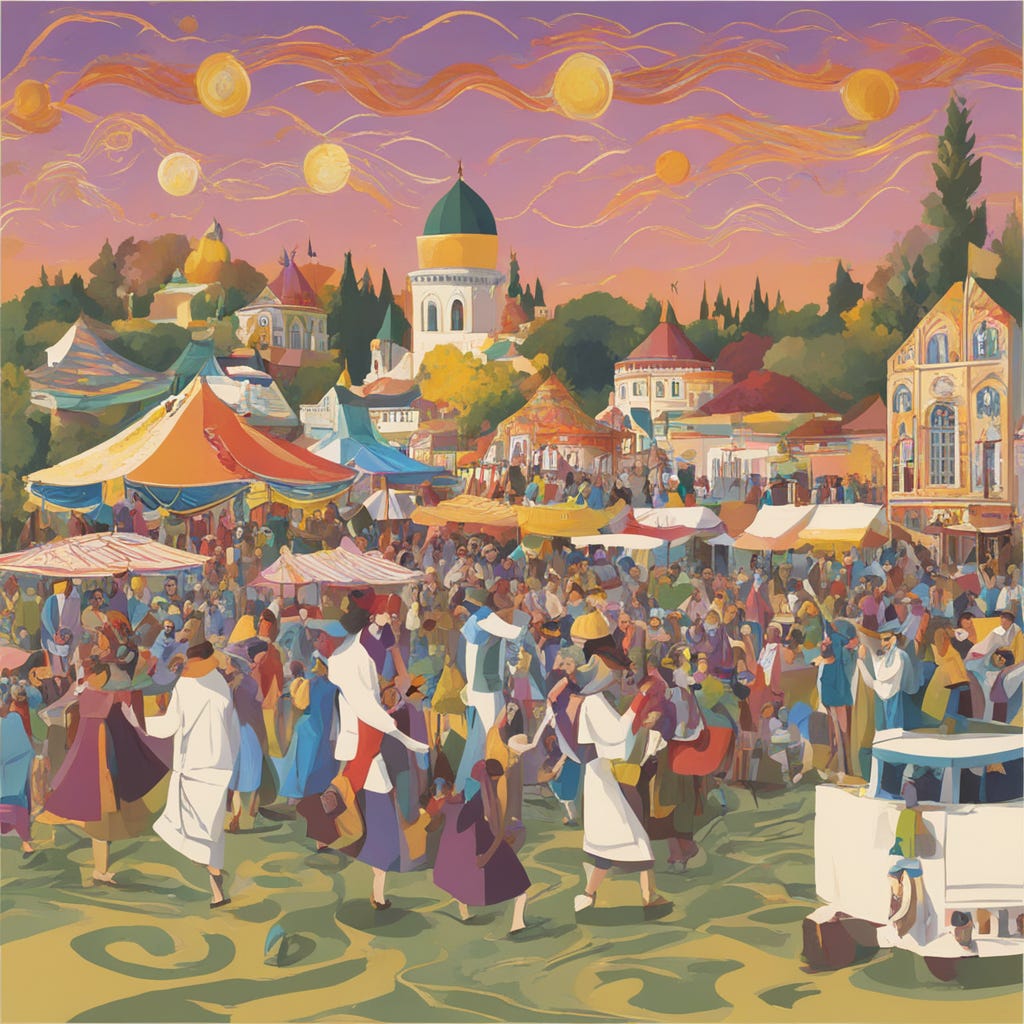Christians and Jewish Holidays
Should Christians observe Jewish holidays and practices?
Should Christians observe Jewish holidays and practices?
Answer:
The church does not celebrate feasts and holidays that were prescribed to Israel in the older covenant in the way that they celebrated them because those were a shadow of the things to come (Colossians 2:17; Hebrews 10:1). Today Christians celebrate the greater sacrament of these festivals by feasting on Jesus (John 6:56; Luke 22:19) and being baptized into his death, into newness of life (Romans 6:3). These are sacraments overseen by biblically qualified elders as the church communes together (Matthew 16:19).
And no one puts new wine into old wineskins. If he does, the wine will burst the skins—and the wine is destroyed, and so are the skins. But new wine is for fresh wineskins. (Mark 2:22)
Text:
Hebrews 1:1-7
1 For since the law has but a shadow of the good things to come instead of the true form of these realities, it can never, by the same sacrifices that are continually offered every year, make perfect those who draw near. 2 Otherwise, would they not have ceased to be offered, since the worshipers, having once been cleansed, would no longer have any consciousness of sins? 3 But in these sacrifices there is a reminder of sins every year. 4 For it is impossible for the blood of bulls and goats to take away sins.
5 Consequently, when Christ came into the world, he said,
“Sacrifices and offerings you have not desired,
but a body have you prepared for me;
6 in burnt offerings and sin offerings
you have taken no pleasure.
7 Then I said, ‘Behold, I have come to do your will, O God,
as it is written of me in the scroll of the book.’”
Overview:
There's an increasing awareness of the Old Covenant practices of Christianity. This is causing Christians to incorporate Jewish religious customs into their worship and lives. This raises the question: should Christians observe Jewish holidays and practices?
Jewish holidays encompass regular events like Purim and Chanukkah, along with seven feasts mandated by the older covenant of the Law. The feasts have historical and spiritual significance related to God's plan of redemption through Christ. The feasts also had very specific commandments involving sacrifices, dietary restrictions, prayers, and temporary shelters. Jewish traditions and various interpretations led to differing practices over time.
The seven festivals or feasts on the Jewish calendar are important for grasping the concept of the seventh-day rest as portrayed in the Bible. These feasts bear symbolic significance, drawing connections to the creation narrative in Genesis and the Exodus story. Their primary purpose was to serve as a means of remembrance and instruction.
Passover (Pesach):
Purpose: Commemorated the Israelites' liberation from slavery in Egypt.
Significance: The Passover lamb's blood spared the Israelite firstborns during the tenth plague.
Feast of Unleavened Bread (Chag HaMatzot):
Purpose: Celebrated immediately after Passover, focusing on the removal of leaven (yeast) from households.
Significance: Symbolized the haste of the Israelites leaving Egypt and their journey into freedom.
Feast of Firstfruits (Yom HaBikkurim):
Purpose: Acknowledged the beginning of the barley harvest in Israel.
Significance: Offering the first bundle of the harvest as a thanksgiving offering to God.
Feast of Weeks (Shavuot or Pentecost):
Purpose: Celebrated seven weeks (50 days) after Passover, marking the wheat harvest.
Significance: Recognized the giving of the Law (Torah) to Moses on Mount Sinai and later became associated by many with the outpouring of the Holy Spirit.
Feast of Trumpets (Rosh Hashanah):
Purpose: Marked the beginning of the Jewish civil year, a day of rest, remembrance, and blowing of trumpets.
Significance: Prepared the people for the Day of Atonement and symbolized God's kingship and the call to repentance.
Day of Atonement (Yom Kippur):
Purpose: A day of fasting and repentance, seeking forgiveness for sins.
Significance: The high priest entered the Holy of Holies in the Tabernacle or Temple to make atonement for the people's sins, symbolizing reconciliation with God.
Feast of Tabernacles (Sukkot):
Purpose: Commemorated the Israelites' journey through the wilderness and God's provision.
Significance: Jews built temporary booths (sukkot) and dwelled in them for seven days, symbolizing dependence on God and gratitude for His blessings.
These feasts had both historical and spiritual significance, often pointing to deeper spiritual truths and prophetic elements. They ultimately point us to our inherent desire for eternal rest in Jesus.
“for anyone who enters God’s rest also rests from their works, just as God did from his.” - Hebrews 4:10.
Should Christians observe Jewish holidays and practices?
Since the Bible teaches that Christ fulfilled the law, freeing believers from its requirements, keeping older covenant feasts as theological obligations is tantamount to putting new wine in old wineskins. While the early church was entering the new covenant from the old, questions were brought up and dealt with as to how Jews believing upon Jesus were to handle their former instructions (Romans 14). Those are a different set of doctrines to address, which teachings are often used to inappropriately erode obligations to Christian practice that are upheld by scripture.
From the perspective of the regulative principle of worship, as the church, we participate in these festivals in their fullness, during the gathering on the Lord’s day. The main purpose today is to serve as a 1) remembrance of Christ’s completed work, and 2) instruction for believers on how to live faithfully today, submitting to Jesus reigning as King.
Today, Christians celebrate the greater sacrament of these festivals by feasting on Jesus (John 6:56; Luke 22:19) and being baptized into his death, into newness of life (Romans 6:3). The sacraments of the church which are to be overseen by biblically qualified elders as the church communes together on the Lord’s Day (Matt. 16:19; Acts 20:7; 1 Cor. 16:2; Rev. 1:10).



